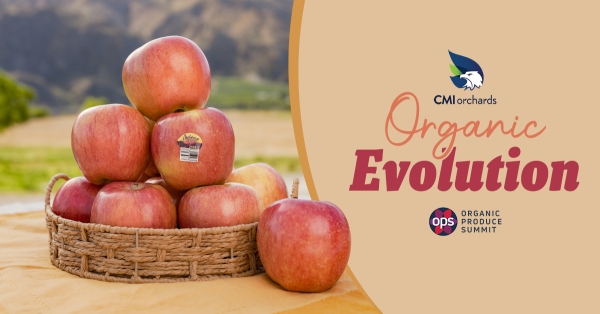
Reports Question How Second Round of Chinese Tariffs Might Affect Fresh Fruit
UNITED STATES - Tensions between China and the United States are spiking, and many growers and shippers wonder how this latest round of tariffs will affect their businesses. After last Friday’s announcement from the Trump administration to add a 25 percent tariff on $50 billion-worth of Chinese exports, China outlined its own plan to impose tariffs on U.S. goods worth $50 billion.
According to a report by CNN Money, The White House announced Monday evening that if China went through with its promise to retaliate against U.S. tariffs, the United States would impose tariffs on an additional $200 billion worth of Chinese goods.
 "Further action must be taken to encourage China to change its unfair practices, open its market to United States goods, and accept a more balanced trade relationship with the United States," President Trump said in a statement issued this Monday.
"Further action must be taken to encourage China to change its unfair practices, open its market to United States goods, and accept a more balanced trade relationship with the United States," President Trump said in a statement issued this Monday.
This conflict has many looking to a possible disruption to their global supply chain. A 15 percent retalitory tariff is already in place on fruit items, and with this second round of tariffs, fresh fruits may be subject to a 25 percent tariff if they are in addition to the first.
When the first tariff was enacted in late March, CNN Money reported that apples and cherries were most likely to be affected.
 "The tit for tat brings the two sides closer to a full-blown trade war," Louis Kuijs, Head of Asian Economics at research firm Oxford Economics, wrote in a note to clients. "While there is in principle still room for negotiation, attitudes seem to be hardening."
"The tit for tat brings the two sides closer to a full-blown trade war," Louis Kuijs, Head of Asian Economics at research firm Oxford Economics, wrote in a note to clients. "While there is in principle still room for negotiation, attitudes seem to be hardening."
The Trump tariffs will be enacted in two waves. More than 800 exports, about $34 billion worth, will be subject to tariffs starting July 6. Another 280 or so still need to undergo a public comment period, and will take effect later.
Trump said Monday that China's response "indicates its determination to keep the United States at a permanent and unfair disadvantage." China's tariffs would target agricultural products, cars, and seafood, among other items.
Last week it included both fruit and pork categories in the second round of tariffs to be imposed on July 6, according to Reuters, which also noted that no other products have been listed twice.

Chinese customers informed a Reuters source on Wednesday that the latest tariff would replace the earlier one, while a Shanghai-based produce company manager, who declined to be identified, said he believed the new tariffs would not be compounded on existing tariffs, and their inclusion on the latest list was a bureaucratic “oversight.”
However, he added that “the document itself is a bit vague so we can’t rule out this possibility, if the trade situation further deteriorates,” the source noted.
President Trump directed Trade Representative Robert Lighthizer to identify $200 billion worth of Chinese goods for additional 10 percent tariffs, which would be enacted if China went forward with its retalitory tariffs.
The Trump Administration also said that if China retaliates again, the United States would pursue additional tariffs on another $200 billion of goods.
"If the United States loses its senses and comes up with a new list, China will be forced to strike back hard, and launch comprehensive measures that match the U.S. move in quantity and quality," said the Chinese Commerce Ministry in a statement on Tuesday.
AndNowUKnow will keep you updated with the latest.






















